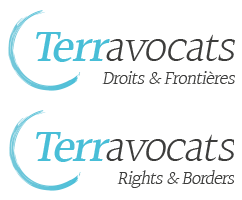Nantes’ Administrative Appeals Court judged that the Interior Ministry could reject a request for naturalization on the sole grounds that the claimant had recourse to surrogacy in his/her country of origin. Naturalization and surrogacy are not compatible, even when surrogacy is authorized in the country of origin!
In this particular case, the claimant had had two children in Moscow and had modified his naturalization file which he had submitted to the French consulate. He had added to his file a declaration of status change in his personal family situation, explaining that he had recently had two children from surrogacy.
The court upheld Nante’s administrative tribunal’s judgment which rejected the naturalization request on the grounds that: the Ministry in charge of naturalization was able, by using its large power of discretion with regards to the civil and penal code’s provisions prohibiting the use of surrogacy, without committing an error in either law or manifest error of assessment, to take into account the fact that the claimant had made use of surrogacy to procreate in his country of origin.
The court’s ruling is based on the article 16-7 of the civil code which stipulates that: “all contracts made with the purpose to procreate by use of a surrogate mother is void” and article 16-9 of the same code covering essentially all articles in question under the public policy provision which enables a judge to raise this point automatically.
This ruling is contrary to the judiciary tendency towards flexibility especially after the famous ECHR court ruling Mennesson c/ France et Labassee c/ France of the 26th of June 2014 which concluded that the French legislation violated the principle of children’s private and family life protected by article 8 of the convention especially with regard to the best interest of the child. The French judiciary high court followed this tendency with four court rulings from the 1st civil chambre on the 5th of july 2017 ( Cass. 1re civ., 5 juill. 2017, n°15-28.597 ; Cass.1re civ., 5 juill. 2017, n°16-16.901 et 16-50.025 ; Cass. 1re civ., 5 juill. 2017, n°16-16.495 ; Cass 1re civ., 5 juill. 2017 n° 16-16.455). The judges from the Quai de l’Horloge therefore recognized the possibility to partially transcribe a foreign child’s birth certificate born through surrogacy into French civil status by recognizing parentage through the father and not through the intended mother. This partial transcription allows the child to obtain French nationality, to live in France and to be adopted by the father’s spouse.
Of course, the father must be French! Indeed, this ruling operates a distinction between a father who is a French citizen by attribution and a father who is a French citizen by acquisition. The former will have his parentage with his child born through surrogacy recognized while the latter will have his request for naturalization refused because he had a child through surrogacy. This court ruling invites us to question not only the delicate status of the child born from surrogacy, but also the foreign father’s status requesting French nationality. So… naturalization or surrogacy, we should not have to choose!
CAA Nantes, ch. réunies, 21 déc. 2017, n°16NT01141

Comments are closed.